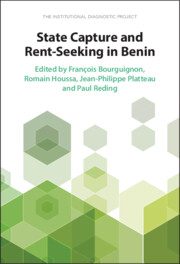François Bourguignon is Emeritus Professor of Economics, Paris School of Economics, and School of Advanced Studies in Social Sciences (EHESS), Paris. He is former chief economist and senior vice president of the World Bank and the co-founder of the European Development Network. His awards include Dan David Prize and CNRS silver medal.
Emilie Caldeira is an associate professor at the School of Economics and the Centre d’Etudes et de Recherche en Développement International (CERDI/CNRS) at the Université Clermont-Auvergne since 2013. She mainly works on taxation issues in developing countries. As a member of the panel of experts of the Public Finance Department of the International Monetary Fund (IMF), she has participated in several technical assistance missions of the Department of Fiscal Affairs since 2015. As part of the FERDI tax programme, she took part in several waves of assessment of tax expenditures in Madagascar, Guinea, and Cameroon. She also coordinates the interministerial platform “Mobilization of domestic public resources and development (MRIP&Dev)” of the MAEE (Ministry of Foreign and European Affairs) and co-organises thematic workshops with a panel of experts.
Rafael Ch Duran is a postdoctoral fellow at Princeton University’s Empirical Studies of Conflict Project (ESOC) and an Economics of Conflicts Fellow at the International Crisis Group. He holds a PhD in politics from NYU, was a 2014 Fulbright Scholar, and has been supported by several organisations like CAF, IPA, and CESED.
Cesi Cruz is an associate professor of political science, UCLA.
Professor Houinsou Dedehouanou studied agricultural economics (National University, Benin, University/Ibadan, University/Reading) during the 1980s. He studied Development Planning at ISS, The Hague, and Social & Behavioral Sciences at the University, Amsterdam (The Netherlands) during the 1990s. His focus is on the “learning strategies” at Higher Education Institutions, Africa.
Dr. ir. Barthélemy Honfoga is an agricultural economist and an assistant professor at the University of Abomey-Calavi (Benin), with expertise in agricultural marketing, food security, policy analysis, business development, and project management. He is currently Head of the School of Agricultural Economics, Rural Sociology and Extension at the Faculty of Agronomic Sciences, University of Abomey-Calavi. He holds a PhD degree in economics and business from the Center for Development Studies, University of Groningen (Netherlands), and an “Ingénieur” degree in agricultural economics, University of Abomey-Calavi. He has more than 30 years of experience as a professional of agricultural research and development. His work has mainly focused on agricultural marketing and value chain analysis. He investigated fertiliser markets in the cotton subsector’s institutional settings, as well as food security, food economy, and environmental and economic sustainability of cotton-based crop production systems in West Africa. He has published his research works in renowned international journals.
Kenneth Houngbedji is a researcher at Institut de Recherche pour le Développement (IRD) and is affiliated with DIAL, a research unit of the Dauphine Economics Laboratory (LEDa) at Université Paris-Dauphine – PSL. He studies how norms and institutions affect the environment and economic and social life in low-income countries.
Romain Houssa is Professor of Economics, University of Namur, Belgium, and the principal investigator on the Benin institutional diagnostic project. His main research deals with issues related to causes and welfare consequences of commodity markets and macroeconomic fluctuations.
Philippe Lavigne Delville is a socio-anthropologist and a senior researcher at Institut de Recherche pour le développement (IRD). He is a member of the Montpellier Land Tenure Team and of the French Technical Committee on Land Tenure and Development. He has been working extensively on land reform and customary tenure formalisation in West Africa, with fieldwork in Benin and now Senegal. He recently edited with Jean-Philippe Colin and Eric Léonard a handbook Le foncier rural dans les pays du Sud (IRD Editions 2022).
Nicaise Médé is a professor at the University of Abomey-Calavi in Benin and the director of the Centre d’Etudes et de Recherche sur l’Administration et les Finances (CERAF). Since December 2021, he is president of the West African Society of Public Finance (SOAFiP), a learned society and think tank specialised in financial and fiscal issues.
Jean-Philippe Platteau is Emeritus Professor of Economics, University of Namur, Belgium. He is the founder and long-time director of the Centre for Research in the Economics of Development (CRED) at the University of Namur. He is the holder of two Franqui chairs in Belgium (Free University of Brussels and Katholieke University of Leuven) and is the co-founder of the European Development Network (EUDN).
Paul Reding is Emeritus Professor of Economics, University of Namur, Belgium. He has taught, carried out his research, and published in the field of monetary and financial economics, with a frequent focus on issues relating to developing countries.
Grégoire Rota-Graziosi is a full professor at the School of Economics, Université Clermont-Auvergne, since 2004. He is the Head of the Centre d’Etudes et de Recherche en Développement International (http://cerdi.uca.fr/) based in Clermont-Ferrand (France) since 2015, co-editor of the Revue Economique du Développement since 2017, and in charge of the research programme on Domestic Revenue Mobilization (DRM) of the Fondation pour les études et recherches sur le développement international (www.ferdi.fr). He is also a member of the Committee for Tax Abuse of the French Republic.
Léonard Wantchekon has made substantive and methodological contributions to the fields of political economy, economic history, and development economics. He is the James Madison Professor of Political Economy at Princeton University, and a fellow of the American Academy of Arts and Sciences and the Econometric Society. Finally, Leonard Wantchekon is the founder and president of the African School of Economics.

